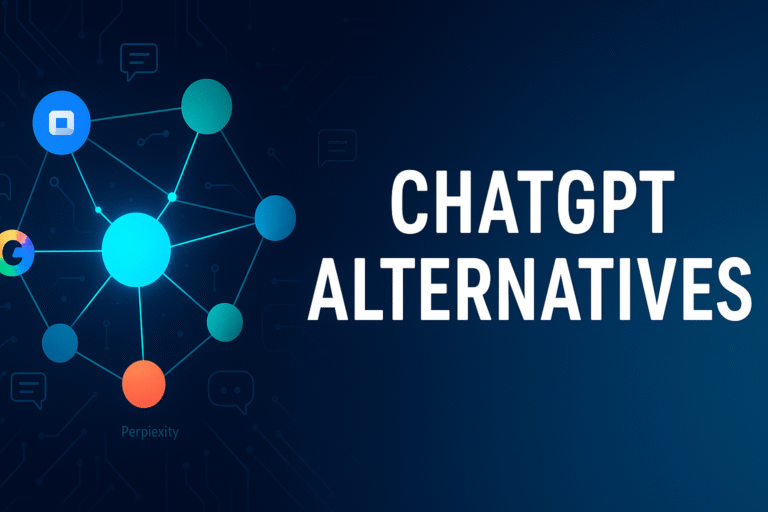Introduction
In an era where Artificial Intelligence (AI) is rapidly automating tasks across industries, a crucial question arises: what about human interpersonal skills? As technical know-how becomes increasingly digitized, the role of humans in the professional world is undergoing a significant re-evaluation. Are “soft skills” being sidelined by the immense power of AI?
This blog post explores why, far from being pushed to the background, soft skills have become a critical asset for companies. We’ll delve into why cultivating empathy, assertive communication, and critical thinking are not just desirable traits, but indispensable for the professional world of tomorrow.
Table of Contents:
- Humans Facing the Gears of AI: A Professional Reality Check
- A Necessary Return to Human Skills
- Cultivating Soft Skills Effectively
- Conclusion
Humans Facing the Gears of AI: A Professional Reality Check
AI’s ascendancy has been swift and profound. From humble beginnings, it has evolved into an indispensable tool in our daily professional lives. Automation is no longer confined to repetitive tasks; AI now demonstrates chameleon-like adaptability, handling even more qualified assignments. The possibilities truly seem boundless.
The Growing Automation of Technical Skills
AI and other algorithms have fundamentally transformed the world of work, particularly in key sectors. Think about it: content writing, text translation, legal or IT expertise, search engine optimization – AI is everywhere. Tools like ChatGPT are revolutionizing how we answer questions, draft documents, gather information, and even find creative inspiration. There’s a pervasive belief that automation and robotics can solve all our problems: boosting productivity, saving time, and filling skill gaps.
The Threat of Dehumanizing Work
But amidst this technological surge, what becomes of humanity? Are we destined to become mere “supervisors” of machines in a not-so-distant future? While automation, when used judiciously, offers undeniable advantages, it also reveals its limitations. Machines cannot grasp unspoken cues, effectively defuse conflicts with empathy, or possess emotional intelligence. This illusion of technological omnipotence risks ushering in a dehumanized world, where raw efficiency overshadows creativity and sensitivity – precisely the elements that give work meaning and purpose.
A Necessary Return to Human Skills
Soft Skills: The Safe Haven of Tomorrow
While AI excels at data analysis, solution generation, and process optimization, it fundamentally lacks the ability to feel. Self-esteem, communication, assertiveness, critical thinking, ethics – these are our soft skills. They are what make us capable of empathy and creativity. Professionals who embody these human qualities foster more meaningful, effective, and innovative work environments.
Innovation, at its core, is about differentiation. A paradox emerges: while AI promises increased productivity, it can also lead to a smoother, more uniform output. If every company relies solely on AI to generate ideas, the risk is a convergence towards standardized thinking. Yet, true creative sparks often ignite from intuition, lived experience, and the rich tapestry of human exchange.
Similarly, relational skills are beyond automation’s grasp. How could AI effectively manage an internal conflict or offer genuinely attentive listening when needed? Only a human can wield soft skills appropriately to cultivate a healthier professional environment. The imperative, therefore, is to strike the right balance between automation and interpersonal relational skills.
The Luxury of Slowness in Business
AI’s appeal often lies in its immediacy. In a society constantly chasing fast and efficient digital tools, the development of soft skills represents a form of luxury. It’s a powerful statement: investing in personal growth and skill development takes time, but the returns, both for the company and its employees, are immeasurable. It’s about empowering ourselves to think long-term and harmoniously integrate technical expertise with interpersonal finesse.
The “slow” approach is gaining traction in professional contexts: slow work, slow learning, slow management. This isn’t about decelerating for the sake of it, but rather about acting with greater awareness and respect. Here, quality undeniably takes precedence over mere quantity.
It is high time to re-prioritize soft skills in the workplace. Despite technological advancements, human skills cannot be downloaded or instantly acquired. They are meticulously woven over time, demanding patience and dedicated care. Since there’s no miraculous app to cultivate them, nor any AI capable of teaching us self-awareness, how do we proceed?
Cultivating Soft Skills Effectively
Becoming the Artisan of Oneself to Develop Abilities
In a world saturated with technology, the mastery of soft skills provides unparalleled added value. Perfecting these skills becomes akin to a true craft, requiring time and dedication to shape. It’s neither innate nor exclusive to an elite few; today, anyone can embark on this journey.
Learning to assert boundaries, to collaborate effectively, or to manage stress often necessitates human support to unlock one’s full potential. Within a safe and supportive environment, it becomes easier to identify and overcome personal blockages and acquire a lasting “toolbox” of skills. Trusting empathetic and experienced professionals, through programs tailored to individual needs, is a crucial first step towards developing interpersonal skills in the workplace.
Learning Through Experience, Not Automatism
Much like a craftsman refining their technique day after day, mastering soft skills is a continuous endeavor. Every interaction presents a fresh opportunity to observe, self-reflect, and transition from theoretical knowledge to practical application. Welcoming disagreement, daring to seek assistance, engaging in self-questioning, adapting to diverse interlocutors – it is through consistent repetition and practical application that soft skills truly come alive. There’s no magic formula, universal tutorial, or AI capable of pushing you beyond your comfort zone.
Developing relational skills also entails embracing the possibility of not succeeding perfectly on the first attempt. Adjusting, starting over, trying again – the progression may sometimes be uneven, but it is invariably enriching. For this continuous growth, a supportive environment where employees can flourish without undue constraint is absolutely essential.
Conclusion
The verdict is clear: automation is poised for further expansion within the professional sphere. However, regardless of how sophisticated or efficient an algorithm becomes, it can never genuinely replace the invaluable human touch. Soft skills are undeniably indispensable for imbuing companies with nuance, fostering a more human-centric approach, and igniting creativity. The key lies in learning to harmoniously combine technical expertise with interpersonal skills: working with others, not in their place.



